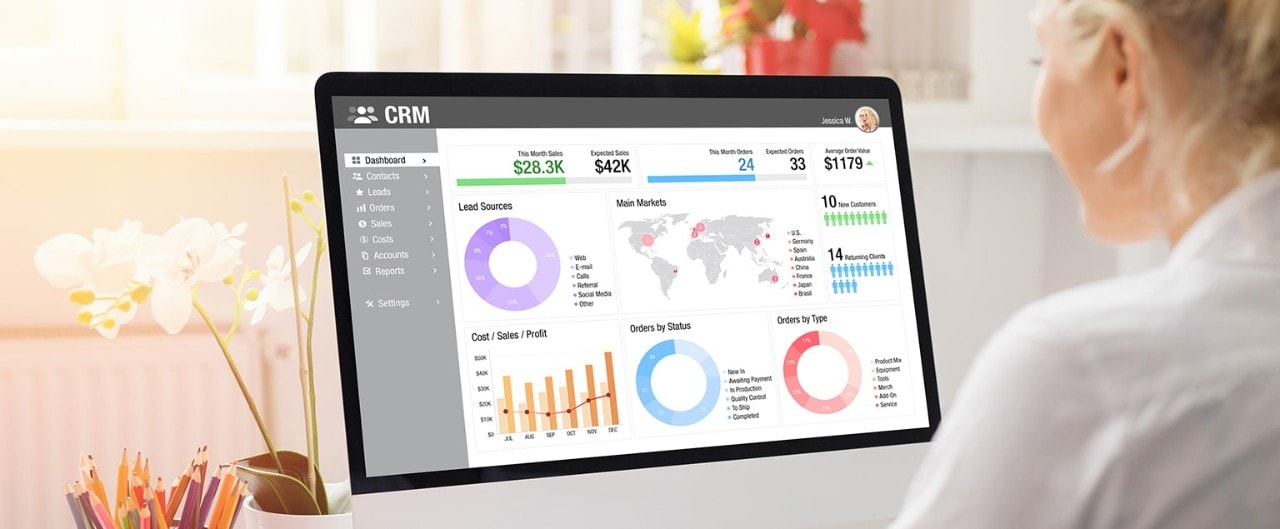

How to use a professional selling system
If your customer base is growing to the point where writing them down in a diary, adding reminders to Outlook or even trying to keep them in your mind is no longer reliable, it’s time to consider using a professional system.
Good customer sales systems manage and analyze customer interactions and data. The idea is that the better you can keep track of your customers and their buying behavior, the better your business relationship with them will be, and the more customers you’ll gain like them.
Professional sales systems help with customer retention and driving sales growth. A comprehensive system means you can capture a wide range of information about your customers, enabling you to learn more about them.
What a selling system should do
Customer retention, and gaining new customers, are essential for successful business growth. The best way to keep your existing customers and to find more like them is to learn as much as you can about them. A good sales system means that you can keep track of them and their buying behavior, as well as staying in contact with them.
When you’re considering what system to use, remember that it should:
- Register leads and contacts. It’s important to keep them ‘warm’ by staying in touch and letting them know of new products, discounts or specials
- Allow you track all customer interaction. If you and your employees enter every contact you’ve had with a customer, you’ll get to know them better, and you’ll forge an important personal relationship with them. If a customer feels that you’re interested in them, they’re more likely to buy from you
- Focus on customer retention. If you’ve developed a good relationship using your customer relationship system, they’re going to be a source of new leads when they tell their friends and family about you.
Customers are your most valuable asset. You want them to stay with you and bring along more like them. A customer sales system means that you’ve got a good overview of them on hand so that you can stay engaged.
Which sales system is best?
It really depends on your business and the number of customers (and potential customers) you have as to what system would suit your business best. You’re looking for a system that:
- Can capture the important data about your customers
- Remind you of key dates about specific customers so you know when to contact them, and why
- Will work with your current systems and is compatible with what you’re already using
- Is easy to use, comes with good support and has decent training available.
One of the most commonly used systems is Salesforce. This cloud-based system offers a range of solutions that will suit almost any business, large or small.
Hubspot is another popular choice. This is an inbound-marketing solution that helps you engage prospective customers with landing pages, calls to action and personalized email.
Reminders – keeping up with potential customers
One of the most valuable aspects of a good sales system is that it will remind you when it’s time to contact potential customers. When you entered their data into the system, you’ll have included key details.
Implementing an effective sales system
As it’s one of the most important tools a business can use, making sure you implement one properly is essential.
Research has shown that if you have a properly implemented and utilized system, your sales can increase by 29%. However, your system is only as effective as the information that’s entered into it, so it’s important to keep the following in mind:
- Keep it simple as if it’s too complicated for you and your staff, it’ll less likely to be used
- It’s best to start by gathering basic information, and as you and your employees become more competent, look at expanding what information you’re capturing. The last thing you want is for a system to become a hindrance to your business instead of an asset
- Once you’ve got the initial system set up, run in-house staff training and make sure that all your employees are confident with the system.
It’s important to view your sales system as an essential business tool and communicate this to your employees. It should be an integral part of everyone’s day, with people continually updating and referring to it. Think of it as another employee!